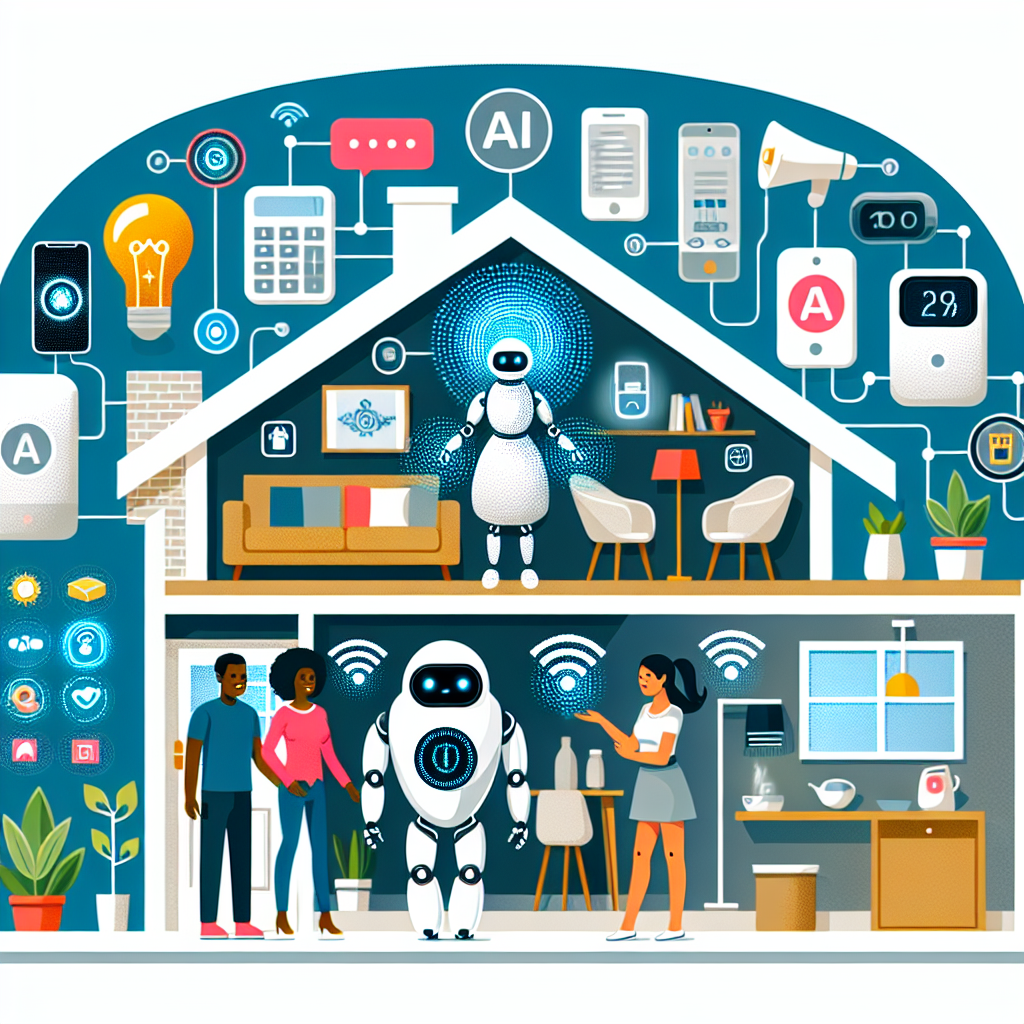Leveraging AI Tools for Smart Home Automation
In recent years, the concept of smart home automation has gained significant traction among consumers looking to make their homes more efficient, convenient, and secure. With the rapid advancement of technology, artificial intelligence (AI) tools have emerged as a key driver of smart home automation, enabling homeowners to control various aspects of their homes with ease and efficiency.
AI tools, such as voice assistants like Amazon Alexa and Google Assistant, as well as AI-powered devices like smart thermostats and security cameras, are revolutionizing the way we interact with our homes. These tools leverage machine learning algorithms to analyze data and make intelligent decisions, allowing homeowners to automate tasks, monitor their homes remotely, and even predict and adjust to their preferences.
One of the key benefits of leveraging AI tools for smart home automation is the ability to create a seamless and integrated home environment. By connecting different devices and systems through a central hub, homeowners can control everything from lighting and temperature to security and entertainment with a single voice command or a tap on their smartphone. This level of integration not only improves the convenience and comfort of living in a smart home but also enhances energy efficiency and security.
For example, AI-powered smart thermostats like Nest Learning Thermostat can learn homeowners’ preferences and adjust the temperature accordingly, helping to reduce energy consumption and lower utility bills. Similarly, smart security cameras equipped with AI algorithms can detect and alert homeowners to potential threats, such as intruders or unusual activity, providing peace of mind and enhancing home security.
Another advantage of AI tools in smart home automation is their ability to adapt and learn from homeowners’ behavior over time. By analyzing data collected from sensors, devices, and user interactions, AI algorithms can identify patterns, predict preferences, and optimize settings to meet homeowners’ needs and preferences. This level of personalization not only enhances the user experience but also leads to greater efficiency and effectiveness in managing the home environment.
Moreover, AI tools enable homeowners to automate routine tasks and schedules, freeing up time and energy for more important activities. For instance, homeowners can program their AI-powered devices to turn off lights, adjust thermostats, and lock doors automatically at certain times or in response to specific triggers, such as leaving the house or detecting motion. This hands-free approach to home management not only simplifies daily routines but also contributes to a more efficient and sustainable lifestyle.
In addition to enhancing convenience and efficiency, AI tools in smart home automation also offer advanced features and capabilities that go beyond traditional home automation systems. For example, AI-powered voice assistants like Amazon Alexa and Google Assistant can perform a wide range of tasks, such as setting reminders, answering questions, playing music, and even ordering groceries online. These multifunctional devices serve as a central hub for controlling smart home devices, as well as providing valuable information and entertainment to homeowners.
Furthermore, AI tools can enable homeowners to monitor and manage their homes remotely, offering peace of mind and convenience when away from home. By connecting to smart home devices through a mobile app or web interface, homeowners can check on their homes, adjust settings, and receive alerts in real-time, ensuring that their homes are safe and secure even when they are not physically present. This remote access not only enhances security but also enables homeowners to control their homes from anywhere in the world, making smart home automation truly convenient and accessible.
Overall, leveraging AI tools for smart home automation offers a wide range of benefits, including convenience, efficiency, personalization, and security. By integrating AI-powered devices and systems into their homes, homeowners can create a seamless and connected environment that enhances their quality of life and improves their daily routines. With the rapid advancement of technology and the increasing availability of AI tools, smart home automation is becoming more accessible and affordable for consumers, paving the way for a more intelligent and connected future.
FAQs:
Q: What are some popular AI tools for smart home automation?
A: Some popular AI tools for smart home automation include voice assistants like Amazon Alexa and Google Assistant, smart thermostats like Nest Learning Thermostat, smart security cameras with AI algorithms, and AI-powered devices such as smart plugs, lights, and locks.
Q: How do AI tools in smart home automation work?
A: AI tools in smart home automation leverage machine learning algorithms to analyze data, learn from user behavior, and make intelligent decisions. These tools can automate tasks, adjust settings, monitor home environments, and predict and adapt to homeowners’ preferences, creating a seamless and integrated home experience.
Q: What are the benefits of leveraging AI tools for smart home automation?
A: The benefits of leveraging AI tools for smart home automation include convenience, efficiency, personalization, security, and remote access. These tools enable homeowners to control various aspects of their homes with ease, optimize energy usage, personalize settings, enhance security, and monitor their homes remotely, improving their quality of life and enhancing their daily routines.
Q: Are AI tools in smart home automation affordable and accessible for consumers?
A: With the rapid advancement of technology and the increasing availability of AI-powered devices, smart home automation is becoming more affordable and accessible for consumers. There are a wide range of options and price points available in the market, making it easy for homeowners to choose AI tools that suit their needs and budget.
Q: How can homeowners get started with AI tools for smart home automation?
A: Homeowners can get started with AI tools for smart home automation by researching and selecting devices that meet their needs and preferences. They can start with basic devices like smart thermostats or security cameras and gradually expand their smart home ecosystem with additional AI-powered devices and systems. Many manufacturers offer user-friendly apps and guides to help homeowners set up and configure their smart home devices easily.

